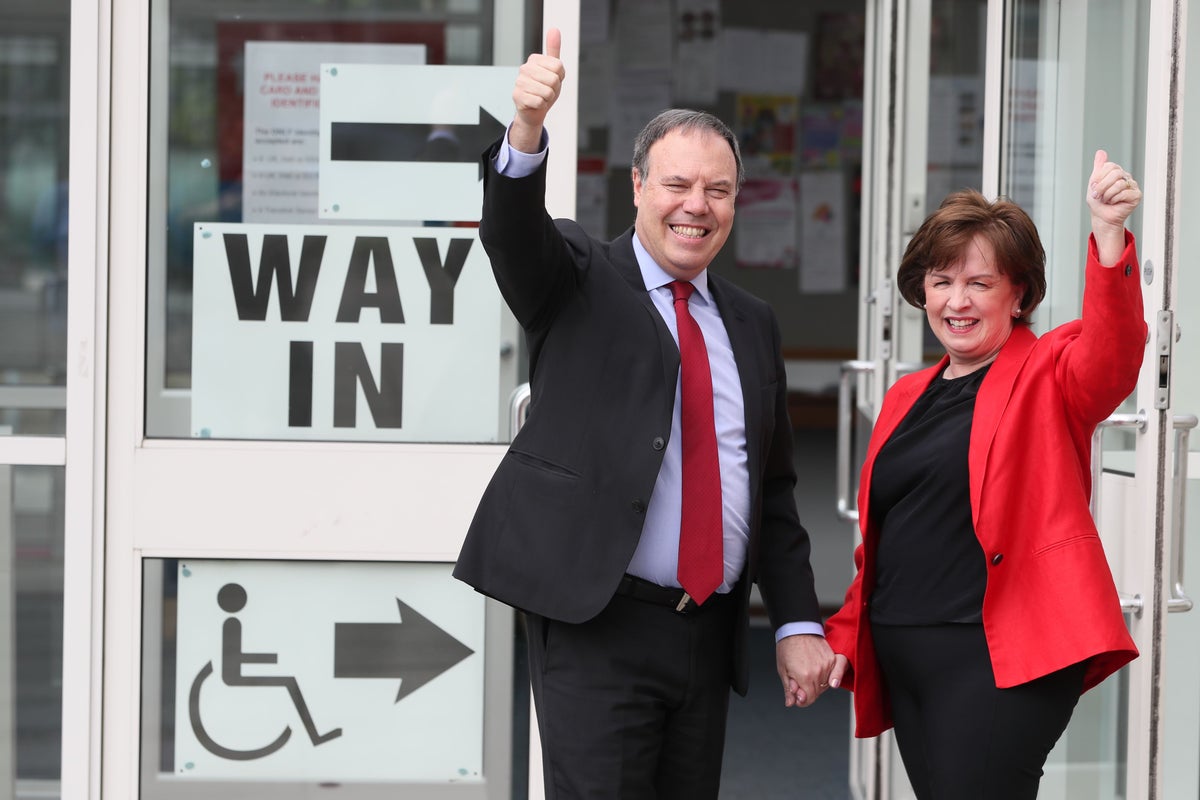
A DUP MLA who, with her husband, was targeted by the IRA as they visited their son in hospital in 1996, has asked the First Minister whether they were innocent victims.
The exchange between Diane Dodds and Michelle O’Neill, whose party, Sinn Fein, had a relationship with the Provisional IRA, came during questions for the Executive Office at the Northern Ireland Assembly on Monday.
Ms Dodds has spoken previously about how she and her husband, Nigel, a former MP and deputy leader of the DUP, were targeted by PIRA as they visited their son, Andrew, at the Royal Victoria Hospital for sick children, in December 1996.
Lord Dodds has described how a “shot rang out in the corridor”, and screaming, panic and shouting, before being told to get down.
On Monday Ms Dodds asked Ms O’Neill: “Do you consider Nigel and I to have been innocent victims of IRA terrorism?”
Ms O’Neill offered to have a conversation with Ms Dodds.
“Let’s sit down and talk about the past,” she said.
“That’s the way in which we heal, that’s the way in which we try to move forward, so my door is open to you at all times to sit down and have a conversation.
“I think it’s really, really important that if we’re going to move forward, we need to have an honest conversation about the fact that there were so many injustices, so much hurt across our society, across all sides.
“Let’s try and find a way to heal. I am more than happy to sit down with you and discuss that even further.”
Ms Dodds said: “Once again, the First Minister cannot condemn the actions of the criminals in the IRA.
“That is part of the problem here, because she talks about an inclusive society, she doesn’t want to include the innocent victims of terrorism.
“Do you understand the impact the eulogising of IRA terrorists is having on innocent victims?”
Ms O’Neill cautioned against “cherry picking” from the past, and made a claim about the DUP’s connection with Ulster Resistance.
“I think it’s important that we actually recognise that there are many people out there that caused hurt in our society, and you can’t just cherry pick, you don’t get to pick who you think is a victim and who isn’t,” she said.
“There are many injustices in the past. There are many people, in terms of British state loyalists, who donned the Ulster beret – your own party would know a lot about that in terms of those who ran weapons and state agents.
“So let’s not be selective, let’s honestly try and find a way to recognise that there are different experiences and different narratives of the past.
“That’s the first step in terms of reconciliation, and let’s use all of our efforts to try and build for a better future.
“That’s what I am focused on. I believe that’s what the vast majority of people here in the society are focused on also.”
